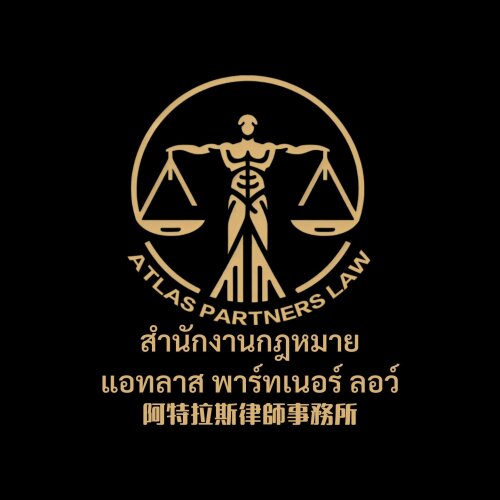ทนายความ ค่าจ้างและเวลาทำงาน ที่ดีที่สุดใน เชียงใหม่
แบ่งปันความต้องการของคุณกับเรา รับการติดต่อจากสำนักงานกฎหมาย
ฟรี ใช้เวลา 2 นาที
รายชื่อทนายความที่ดีที่สุดใน เชียงใหม่, ประเทศไทย
1. เกี่ยวกับกฎหมายค่าจ้างและเวลาทำงานในเชียงใหม่, ประเทศไทย
กฎหมายค่าจ้างและเวลาทำงานในเชียงใหม่ถูกควบคุมโดยกฎหมายแรงงานของประเทศไทย ซึ่งบังคับใช้กับนายจ้างและลูกจ้างทุกราย
หลักสำคัญคือการกำหนดเวลาทำงานสูงสุด ค่าจ้างขั้นต่ำ และการชดเชยเมื่อมีการทำงานล่วงเวลา
พนักงานในเชียงใหม่มีสิทธิได้รับค่าจ้างตามสภาพการจ้าง รวมถึงสลิปเงินเดือนที่ชัดเจนและการชดเชยเมื่อถูกบอกเลิกจ้างโดยไม่เหมาะสม
การยึดถือกฎหมายเหล่านี้ช่วยให้บริษัทในเชียงใหม่ปฏิบัติตามข้อบังคับ ลดความขัดแย้งด้านค่าจ้างและเวลาทำงาน
2. ทำไมคุณอาจต้องการทนายความ
คุณถูกนายจ้างไม่จ่ายค่าจ้างขั้นต่ำในเชียงใหม่ หรือจ่ายไม่ครบตามสาขาอาชีพของคุณ
คุณถูกหักค่าจ้างโดยไม่ชัดเจน หรือมีข้อพิพาทเรื่องการหักค่าคอมมิชชั่นในเชียงใหม่
คุณทำงานล่วงเวลาแต่ไม่ได้รับค่าล่วงเวลาตามอัตราที่กฎหมายกำหนด
คุณสงสัยว่าสัญญาจ้างไม่ตรงกับกฎหมายท้องถิ่น หรือไม่มีกลไกเรียกร้องที่ชัดเจน
คุณต้องการยื่นเรื่องต่อสำนักงานสวัสดิการและคุ้มครองแรงงานจังหวัดเชียงใหม่ หรือดำเนินคดีในศาลแรงงาน
3. ภาพรวมกฎหมายท้องถิ่น
กฎหมายที่เกี่ยวข้องในเชียงใหม่ มีสองแนวหลักคือกฎหมายค่าจ้างขั้นต่ำและกฎหมายเวลาทำงาน
กฎหมายค่าจ้างขั้นต่ำ กำหนดอัตราค่าจ้างขั้นต่ำโดยกระทรวงแรงงาน ซึ่งแต่ละจังหวัดจะมีอัตราแตกต่างกัน และเชียงใหม่อยู่ในกลุ่มจังหวัดภาคเหนือที่รับอัตราค่าจ้างขั้นต่ำประจำปี
กฎหมายเวลาทำงานและค่าจ้าง ถูกกำหนดไว้ในพระราชบัญญัติคุ้มครองแรงงาน พ.ศ.2541 และพระราชกฤษฎีกาค่าจ้างขั้นต่ำ ซึ่งระบุชั่วโมงทำงานปกติ ไม่ควรเกิน 8 ชั่วโมงต่อวัน และ 48 ชั่วโมงต่อสัปดาห์
แนวปฏิบัติทางท้องถิ่น ในเชียงใหม่ นายจ้างควรมีสัญญาจ้างที่ชัดเจน บันทึกเวลาทำงาน และจ่ายค่าจ้างตรงเวลา พร้อมรายละเอียดการจ่ายเงินเดือนและลำดับการลา
อ้างอิงแนวคิดทางกฎหมาย: กฎหมายค่าจ้างขั้นต่ำและเวลาทำงานจะถูกปรับปรุงตามประกาศกระทรวงแรงงาน และบังคับใช้ทั่วประเทศรวมถึงเชียงใหม่
4. คำถามที่พบบ่อย
อะไรคือกฎหมายค่าจ้างขั้นต่ำและเวลาทำงานที่เกี่ยวข้องในเชียงใหม่?
กฎหมายค่าจ้างขั้นต่ำกำหนดอัตราค่าจ้างขั้นต่ำที่นายจ้างต้องจ่ายต่อวันหรือต่อชั่วโมงตามจังหวัด เชียงใหม่อยู่ในประกาศของกระทรวงแรงงาน
อย่างไรฉันจะทราบอัตราค่าจ้างขั้นต่ำที่ถูกต้องสำหรับเชียงใหม่ในปีนี้?
ตรวจสอบจากเว็บไซต์กระทรวงแรงงานที่อัปเดตล่าสุด และสื่อราชการจังหวัดเชียงใหม่เพื่ออัตราที่ใช้งานจริงในปีนั้น
เมื่อไหร่ที่นายจ้างสามารถเรียกให้ทำงานล่วงเวลาได้?
เวลางานล่วงเวลาต้องได้รับเขตอนุญาตอย่างชัดเจน โดยอัตราค่าล่วงเวลาคืออย่างน้อย 1.5 เท่าของค่าจ้างปกติ และต้องไม่ละเมิดขีดจำกัดรวมของสัปดาห์
ที่ไหนฉันสามารถยื่นเรื่องร้องเรียนเรื่องค่าจ้างในเชียงใหม่?
คุณสามารถยื่นเรื่องที่สำนักงานสวัสดิการและคุ้มครองแรงงานจังหวัดเชียงใหม่ หรือผ่านช่องทางออนไลน์ของกระทรวงแรงงาน
ทำไมสัญญาจ้างถึงมีความสำคัญในการคุ้มครองสิทธิ?
สัญญาจ้างระบุเงื่อนไขการจ้างและเวลาทำงาน ช่วยให้คุณมีหลักฐานในการเรียกร้องค่าจ้างและลำดับการชดเชย
สามารถเรียกร้องค่าใช้จ่ายการยื่นเรื่องได้ไหม?
บางกรณี ทนายความหรือศาลแรงงานอาจมีค่าใช้จ่ายในการให้คำปรึกษาเบื้องต้น และค่าใช้จ่ายตามกระบวนการ หากเป็นกรณีที่ชนะคดี ฝ่ายแพ้จะรับผิดชอบบางส่วน
กระบวนการจ้างทนายความด้านค่าจ้างในเชียงใหม่แตกต่างจากกรุงเทพฯอย่างไร?
ในเชียงใหม่คุณอาจพบทนายที่มีประสบการณ์ด้านแรงงานในภูมิภาคเหนือ ซึ่งอาจเข้าใจบริบทท้องถิ่นได้ดีกว่า และสามารถประสานงานกับสำนักงานแรงงานจังหวัดได้รวดเร็ว
ฉันต้องเตรียมเอกสารอะไรบ้างก่อนปรึกษาทนาย?
สัญญาจ้าง สลิปเงินเดือน ใบสลักเวลางาน ใบแจ้งหักค่วร และหลักฐานที่เกี่ยวข้องกับการค้างชำระเงิน
ความแตกต่างระหว่างการเจรจาไกล่เกลี่ยกับการฟ้องศาลคืออะไร?
การไกล่เกลี่ยมักเร็วและลดค่าใช้จ่าย ขณะที่การฟ้องศาลให้การบังคับตามกฎหมายมีผลบังคับและทางเลือกที่ยิ่งใหญ่เมื่อข้อเท็จจริงชัดเจน
ฉันควรเลือกทนายความที่มีประสบการณ์ในเชียงใหม่หรือไม่?
ใช่ ควรเลือกทนายที่มีประสบการณ์งานแรงงานในเชียงใหม่ เนื่องจากเข้าใจกฎหมายท้องถิ่นและศาลแรงงานที่เกี่ยวข้อง
ขั้นตอนการเรียกร้องค่าจ้างอย่างไรที่มีประสิทธิภาพ?
รวบรวมหลักฐานให้ครบถ้วน ปรึกษาทนายที่เชี่ยวชาญ แล้วดำเนินการผ่านสำนักงานแรงงาน เช่น การแจ้งเรื่องและขอคำชี้แจงอย่างเป็นทางการ
ฉันสามารถเรียกร้องค่าแรงย้อนหลังได้หรือไม่?
ได้ หากมีหลักฐานที่แสดงว่าไม่ได้รับค่าจ้างครบตามข้อตกลงหรือกฎหมาย และผ่านกระบวนการที่ถูกต้อง
ฉันควรทำอย่างไรเมื่อเจอปัญหในการจ่ายค่าจ้างในเชียงใหม่?
เริ่มจากการบันทึกข้อมูลการจ่ายเงิน เวลาทำงาน และการแจ้งเจ้าหน้าที่ผู้เกี่ยวข้อง เพื่อดำเนินการตามขั้นตอนที่ถูกต้อง
5. ทรัพยากรเพิ่มเติม
กระทรวงแรงงาน ข้อมูลกฎหมายค่าจ้างและเวลาทำงาน รวมถึงประกาศอัตราค่าจ้างขั้นต่ำ
กรมสวัสดิการและคุ้มครองแรงงาน คู่มือการคุ้มครองแรงงาน การแจ้งเรื่อง และการดำเนินคดี
สำนักงานสถิติแห่งชาติ สถิติด้านการจ้างงาน เงินเดือน และเวลาทำงานในภูมิภาค
แหล่งอ้างอิงหลัก:
- กระทรวงแรงงาน (labour.go.th)
- กรมสวัสดิการและคุ้มครองแรงงาน (dlw.go.th)
- สำนักงานสถิติแห่งชาติ (nso.go.th)
6. ขั้นตอนถัดไป
ประเมินสถานการณ์ด้านค่าจ้างและเวลาทำงานที่เกี่ยวข้อง โดยเก็บข้อมูลสลิปเงินเดือน เวลาเข้างาน และสัญญาจ้าง
ค้นหาทนายความที่เชี่ยวชาญด้านค่าจ้างและเวลาทำงานในเชียงใหม่ โดยดูประสบการณ์ในศาลแรงงานและเคสที่คล้ายคุณ
นัดหมายปรึกษาเบื้องต้น ปรึกษาเรื่องค่าใช้จ่ายและระยะเวลาโดยประมาณ
ขอประมาณการค่าใช้จ่ายทั้งหมด พร้อมรายละเอียดการเรียกร้องที่เป็นไปได้ และวิธีดำเนินการ
ตัดสินใจว่าต้องการไกล่เกลี่ยหรือยื่นฟ้องศาลแรงงาน และเริ่มขั้นตอนเอกสารประกอบ
ส่งคำร้อง/ข้อเรียกร้องอย่างเป็นทางการ พร้อมแนบหลักฐานทั้งหมด
ติดตามผลกับสำนักงานแรงงานหรือศาลเพื่อให้กระบวนการเสร็จสมบูรณ์ตามกฎหมาย
Lawzana ช่วยคุณค้นหาทนายความและสำนักงานกฎหมายที่ดีที่สุด ใน เชียงใหม่ ผ่านรายชื่อผู้เชี่ยวชาญด้านกฎหมายที่มีคุณสมบัติเหมาะสมที่คัดสรรและตรวจสอบล่วงหน้า แพลตฟอร์มของเรานำเสนอการจัดอันดับและโปรไฟล์โดยละเอียดของทนายความและสำนักงานกฎหมาย ช่วยให้คุณเปรียบเทียบตามสาขากฎหมาย รวมถึง ค่าจ้างและเวลาทำงาน ประสบการณ์ และความคิดเห็นของลูกค้า
แต่ละโปรไฟล์ประกอบด้วยคำอธิบายเกี่ยวกับสาขากฎหมายของสำนักงาน รีวิวจากลูกค้า สมาชิกในทีมและหุ้นส่วน ปีที่ก่อตั้ง ภาษาที่พูด ที่ตั้งสำนักงาน ข้อมูลการติดต่อ การมีตัวตนบนโซเชียลมีเดีย และบทความหรือแหล่งข้อมูลที่เผยแพร่ สำนักงานส่วนใหญ่บนแพลตฟอร์มของเราพูดภาษาอังกฤษและมีประสบการณ์ทั้งในเรื่องกฎหมายท้องถิ่นและระหว่างประเทศ
ขอใบเสนอราคาจากสำนักงานกฎหมายชั้นนำ ใน เชียงใหม่, ประเทศไทย — รวดเร็ว ปลอดภัย และไม่ยุ่งยาก
ข้อจำกัดความรับผิดชอบ:
ข้อมูลที่ให้ไว้ในหน้านี้มีวัตถุประสงค์เพื่อเป็นข้อมูลทั่วไปเท่านั้นและไม่ถือเป็นคำแนะนำทางกฎหมาย แม้ว่าเราจะพยายามตรวจสอบความถูกต้องและความเกี่ยวข้องของเนื้อหา แต่ข้อมูลทางกฎหมายอาจเปลี่ยนแปลงได้ตามกาลเวลา และการตีความกฎหมายอาจแตกต่างกันไป คุณควรปรึกษาผู้เชี่ยวชาญด้านกฎหมายที่มีคุณสมบัติเหมาะสมเพื่อขอคำแนะนำเฉพาะสำหรับสถานการณ์ของคุณเสมอ
เราปฏิเสธความรับผิดทั้งหมดสำหรับการกระทำที่ทำหรือไม่ทำตามเนื้อหาในหน้านี้ หากคุณเชื่อว่าข้อมูลใดไม่ถูกต้องหรือล้าสมัย โปรด contact us และเราจะตรวจสอบและแก้ไขตามความเหมาะสม










